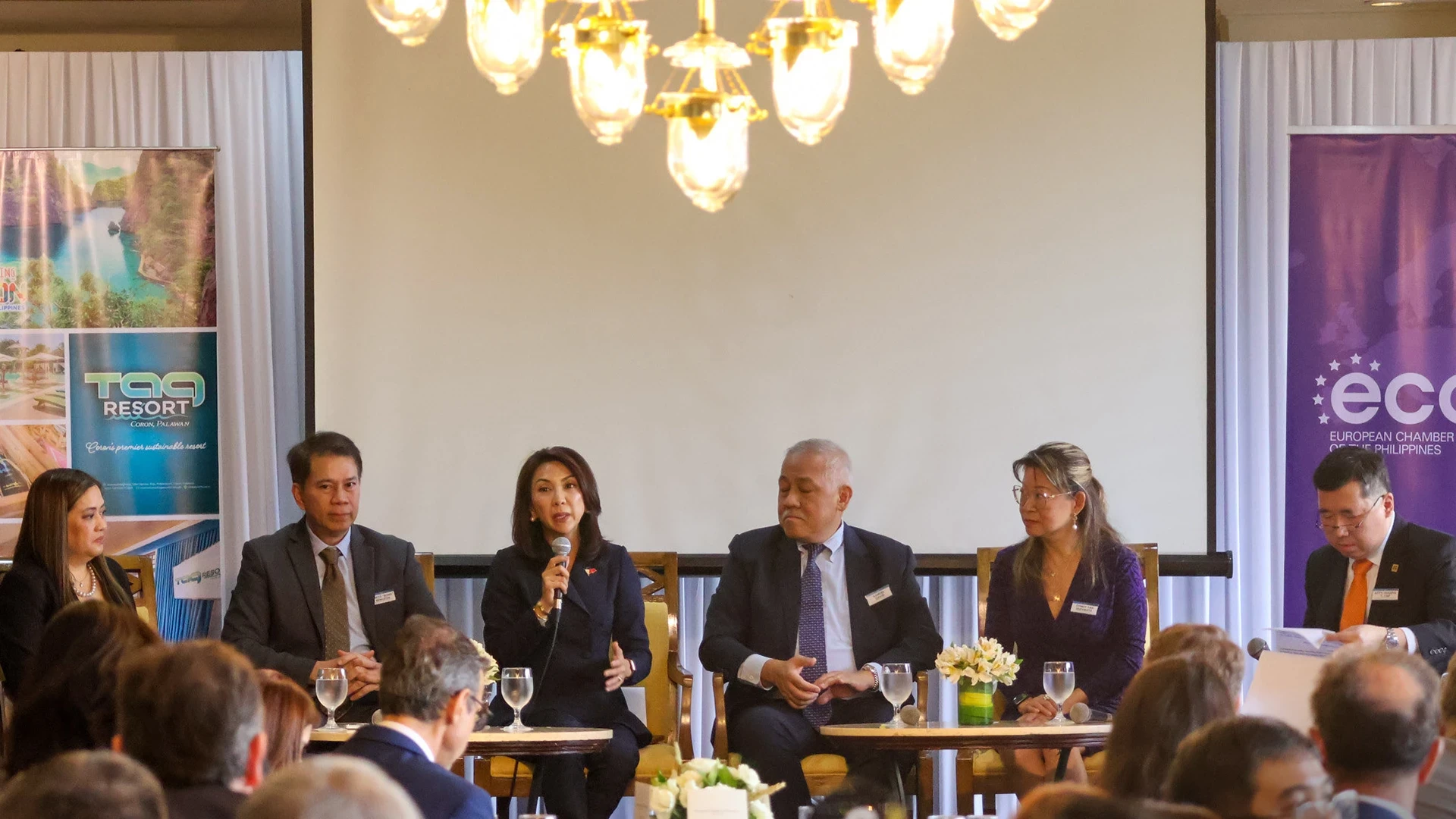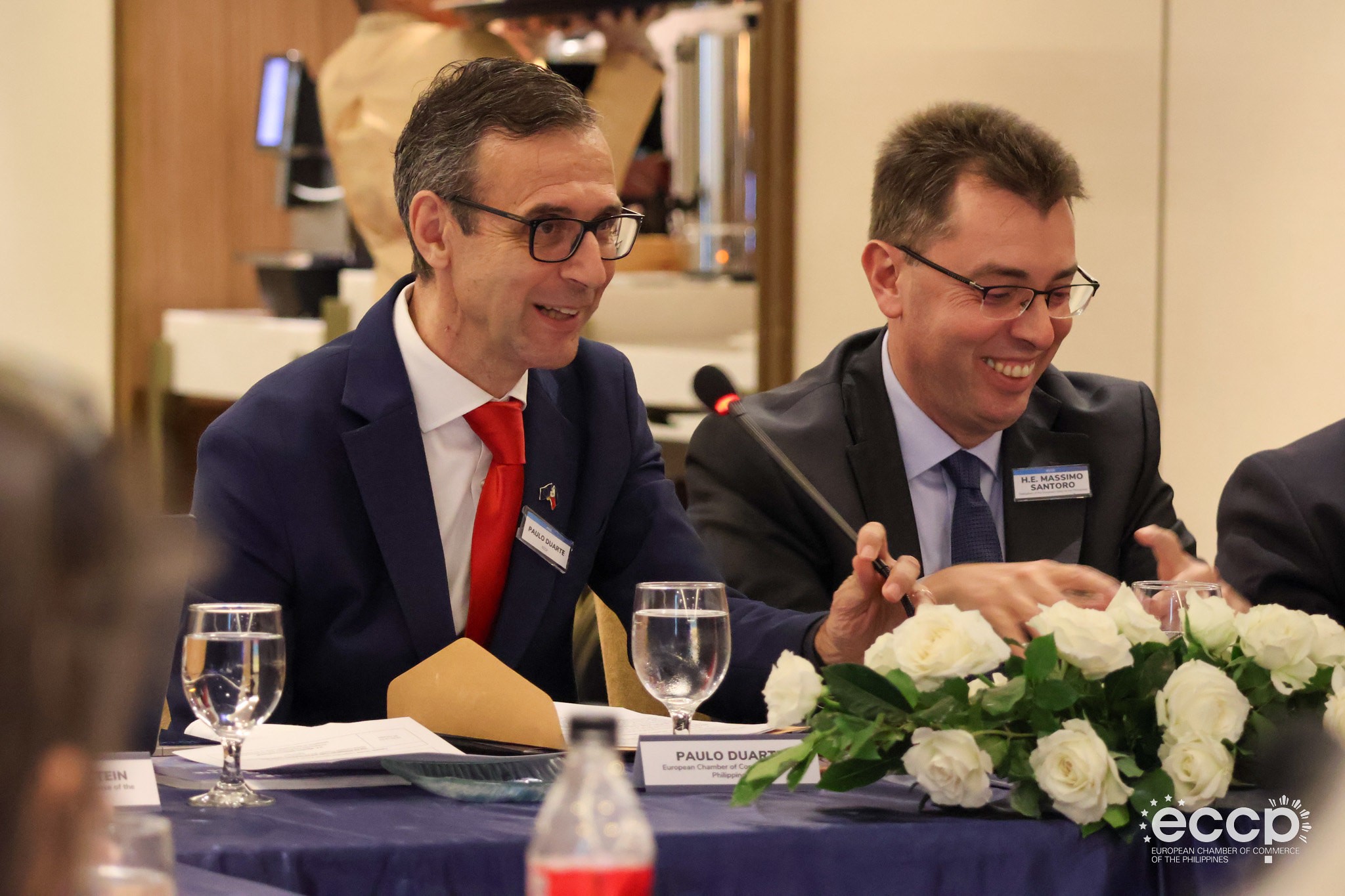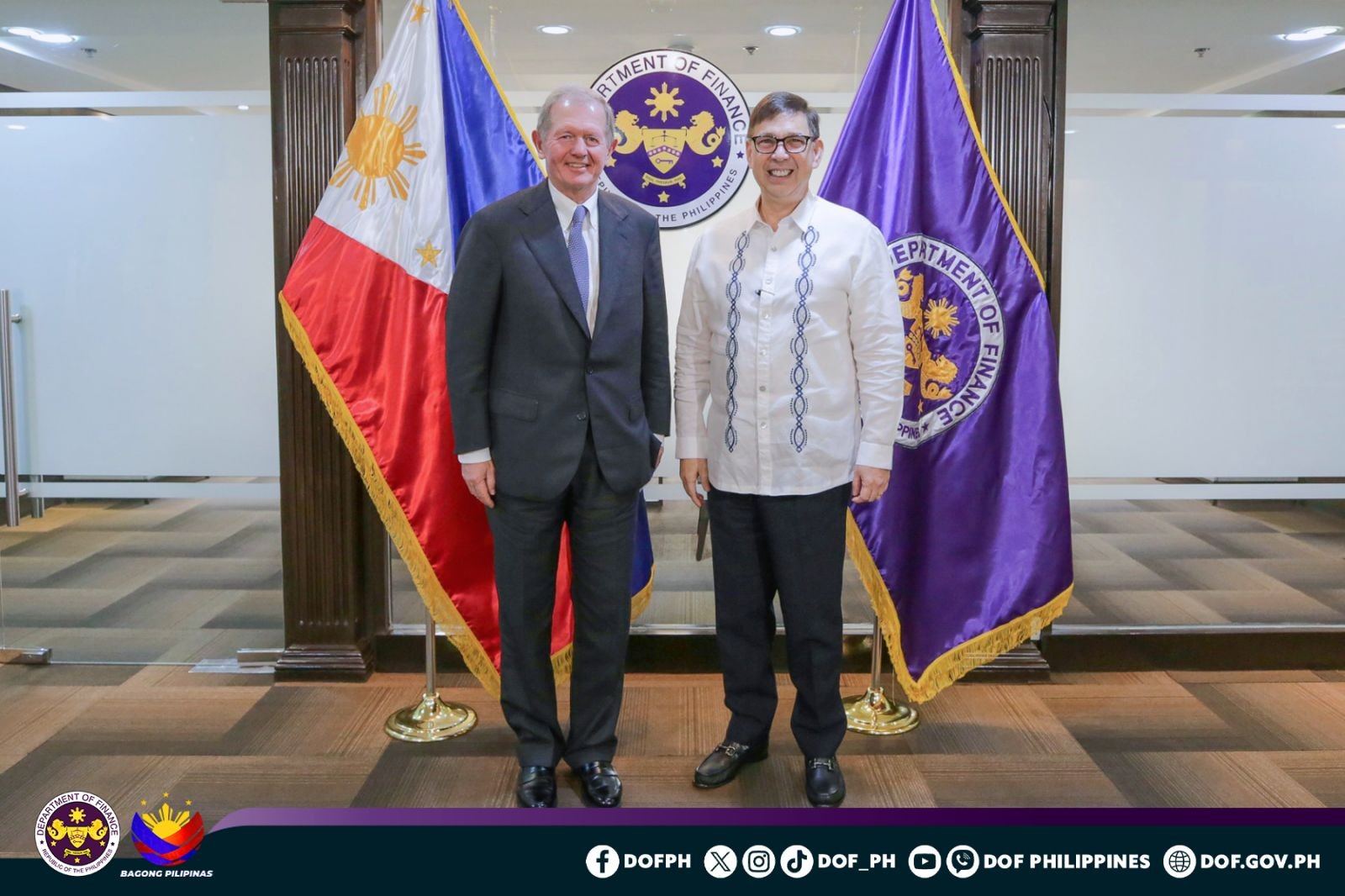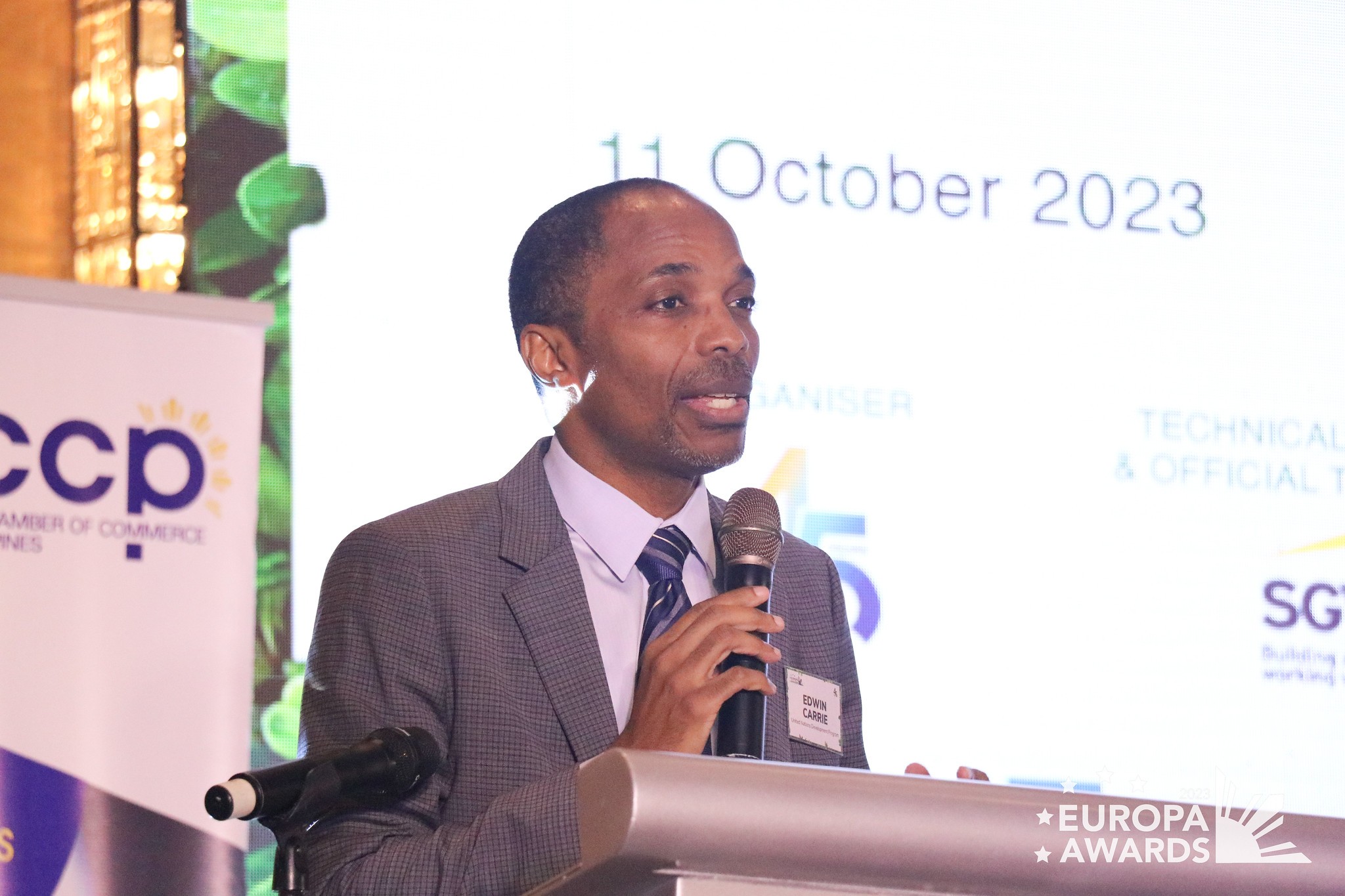
 Makati City, Philippines – At a luncheon meeting organized by the European Chamber of Commerce of the Philippines (ECCP), Department of Tourism (DOT) Secretary Christina Garcia Frasco emphasized the role of the private sector in transforming the Philippines into a globally competitive and sustainable tourism destination.
Makati City, Philippines – At a luncheon meeting organized by the European Chamber of Commerce of the Philippines (ECCP), Department of Tourism (DOT) Secretary Christina Garcia Frasco emphasized the role of the private sector in transforming the Philippines into a globally competitive and sustainable tourism destination.
“I think that the private sector is absolutely essential in the success of any tourism nation. For it is the private sector that invests in the destination, and it is the private sector that provides employment to our people, and it is the private sector that continues to express confidence in the investment climate that will also attract more investments,” said Secretary Frasco.
Frasco highlighted that feedback from extensive consultations with both local and international stakeholders, including foreign business chambers, has underscored the urgency of addressing tourism infrastructure gaps and accelerating digital transformation.
“We do not enjoy the advantage that our neighbors have in the ASEAN in terms of international land travel. Over 99% of our international tourists are dependent on air travel,” she explained. “Hence, it has been the advocacy of the Department of Tourism to work with our fellow government agencies, including the Department of Transportation, to focus on building up infrastructure and connectivity.”
Frasco cited inter-agency efforts, such as the privatization of key gateways, including the NAIA, Bohol, Iloilo, Bicol, and Laguindingan airports, and the DOT’s partnership with the Department of Public Works and Highways, which has led to the construction of over 700 kilometers of tourism roads.
 ECCP President Paulo Duarte welcomed these developments but stressed that more decisive investments and reforms are needed for the Philippines to compete with regional tourism hubs.
ECCP President Paulo Duarte welcomed these developments but stressed that more decisive investments and reforms are needed for the Philippines to compete with regional tourism hubs.
“The Philippines, while a promising destination, faces challenges in advancing alongside regional counterparts, particularly in expanding hotel infrastructure and streamlining visa processes,” Duarte noted.
He also underscored the importance of digital and physical connectivity across Luzon, Visayas, and Mindanao, enhancing tourism workforce skills, and ensuring the safety and security of travelers to build long-term trust and attract repeat travelers.
As part of the DOT’s efforts to embed sustainability in tourism operations, Secretary Frasco detailed ongoing initiatives to support the private sector in adopting responsible and regenerative tourism practices.
“One of the measures by which we have tried to provide government intervention for the private sector to be able to institute sustainability measures is through the revision of our National Accommodation Standards and the star rating of our properties,” she said. “We have included green as well as sustainability criteria, in that your chances of increasing your rating will improve if you comply with as many of the criteria and revised standards as possible.”
Frasco also cited the DOT’s partnership with the Asian Institute of Management, which rolled out sustainable tourism education modules for the Association of Tourism Officers in the Philippines to ensure that principles of sustainability are embedded in local tourism strategies and felt in destinations nationwide.
To further reinforce this, the DOT is offering the private sector its ongoing training modules under its Human Capital Development Office, tailored for frontliners and tourism-related properties.
“In terms of improving the quality of tourism services, we have trained over 280,000 Filipinos to date in properties across the country and in various industries related to tourism in the Filipino brand of service excellence as well as our tourism skills program.”
Moreover, Frasco announced that the Department has signed joint administrative guidelines with the Commission on Higher Education (CHED) to ensure that travel taxes Filipinos pay—40% of which is approved to CHED—are used to fund tourism education programs.
Secretary Frasco also highlighted the DOT’s close collaboration with the Philippine Hotel Owners Association (PHOA) to address the growing demand for accommodation as tourist arrivals continue to increase.
“Their group has really been such a wonderful resource for us to ensure that not only are we able to sustain the offerings that we already have in the accommodation sector, but that we are able to prepare for projected demand,” she said.
She noted that the Philippines currently has around 335,000 room keys, and by 2028, demand is expected to grow to 456,000 room keys.
“There are many more rooms to build. Therefore, working with PHOA and our private sector partners, we are ensuring that investments flood into the country so that we are able to meet this growing demand for Philippine tourism.”
Closing her remarks, Secretary Frasco reiterated the importance of unified efforts in achieving the Philippines’ tourism transformation goals.
“The work of tourism development, or nation building as that, is not the work of government alone,” she said. “It is a cohesive, collaborative effort that requires partnership with the private sector. We look to your long-standing expertise, your investments, your guidance, and your insights to ensure that Philippine tourism truly transforms into the powerhouse we know it can be—given the right investments and interventions.”
 The ECCP Luncheon Meeting with the Department of Tourism is organized together with Event Supporter TAG Resort Coron Palawan, Table Top Partner Marivent Resort Hotel Inc. (Las Casas), and Media Partner Great Travel Philippines.
The ECCP Luncheon Meeting with the Department of Tourism is organized together with Event Supporter TAG Resort Coron Palawan, Table Top Partner Marivent Resort Hotel Inc. (Las Casas), and Media Partner Great Travel Philippines.